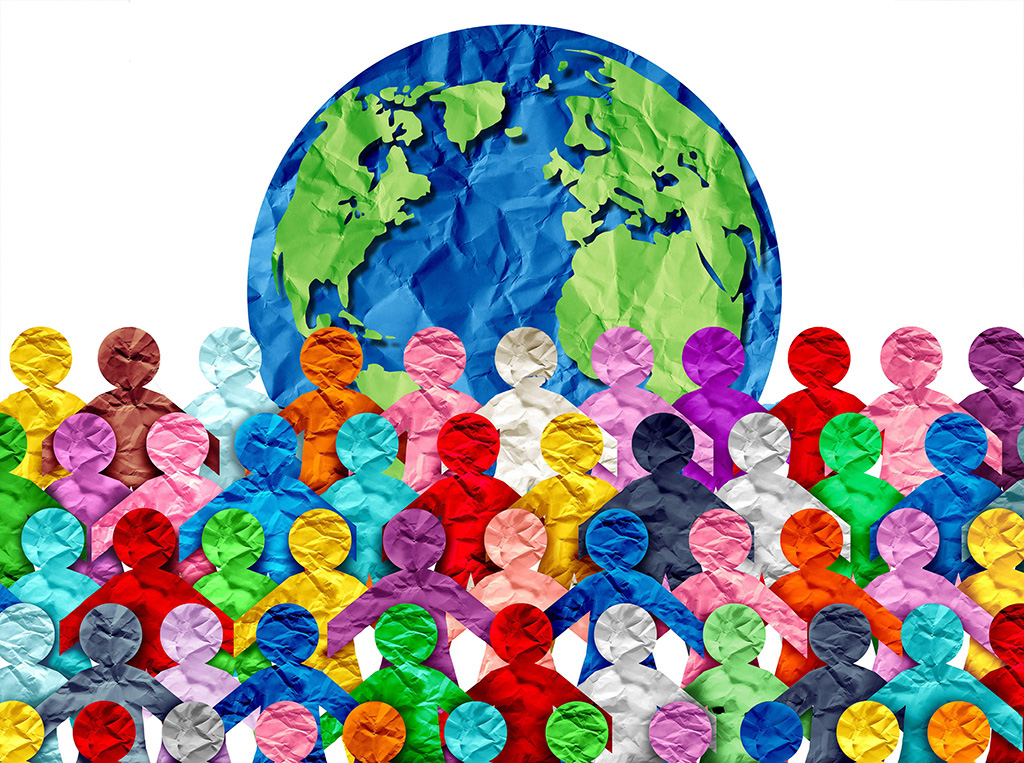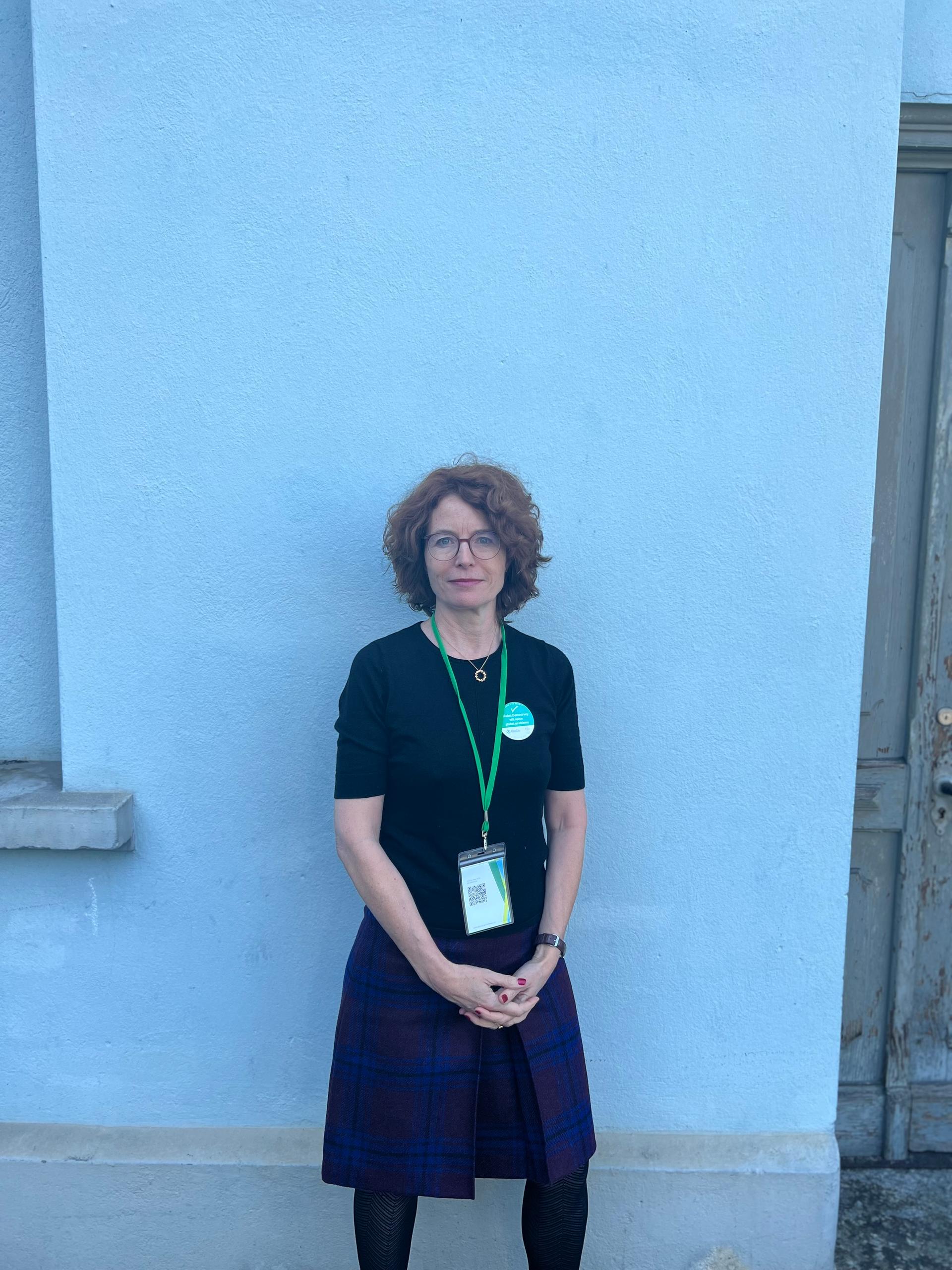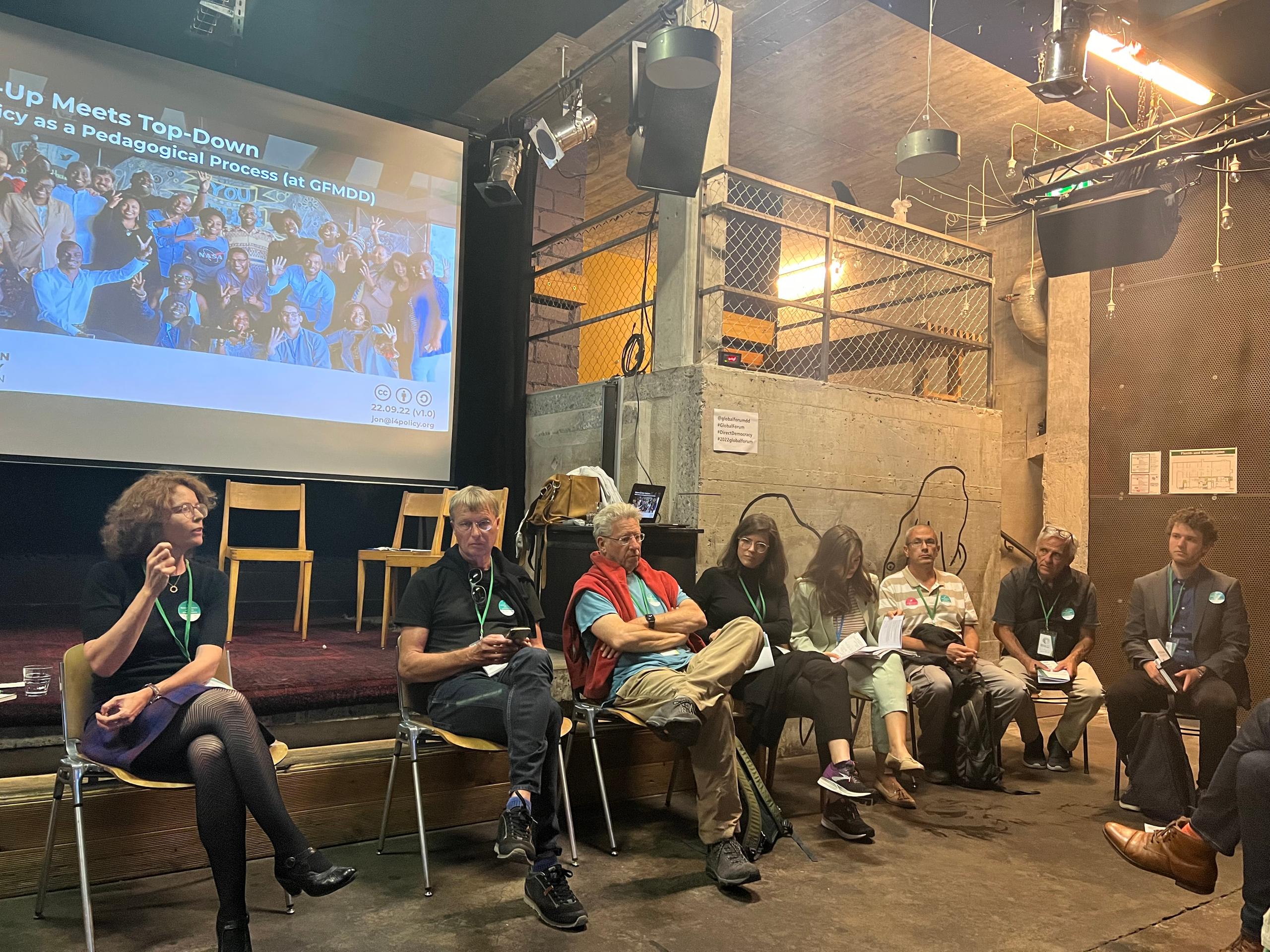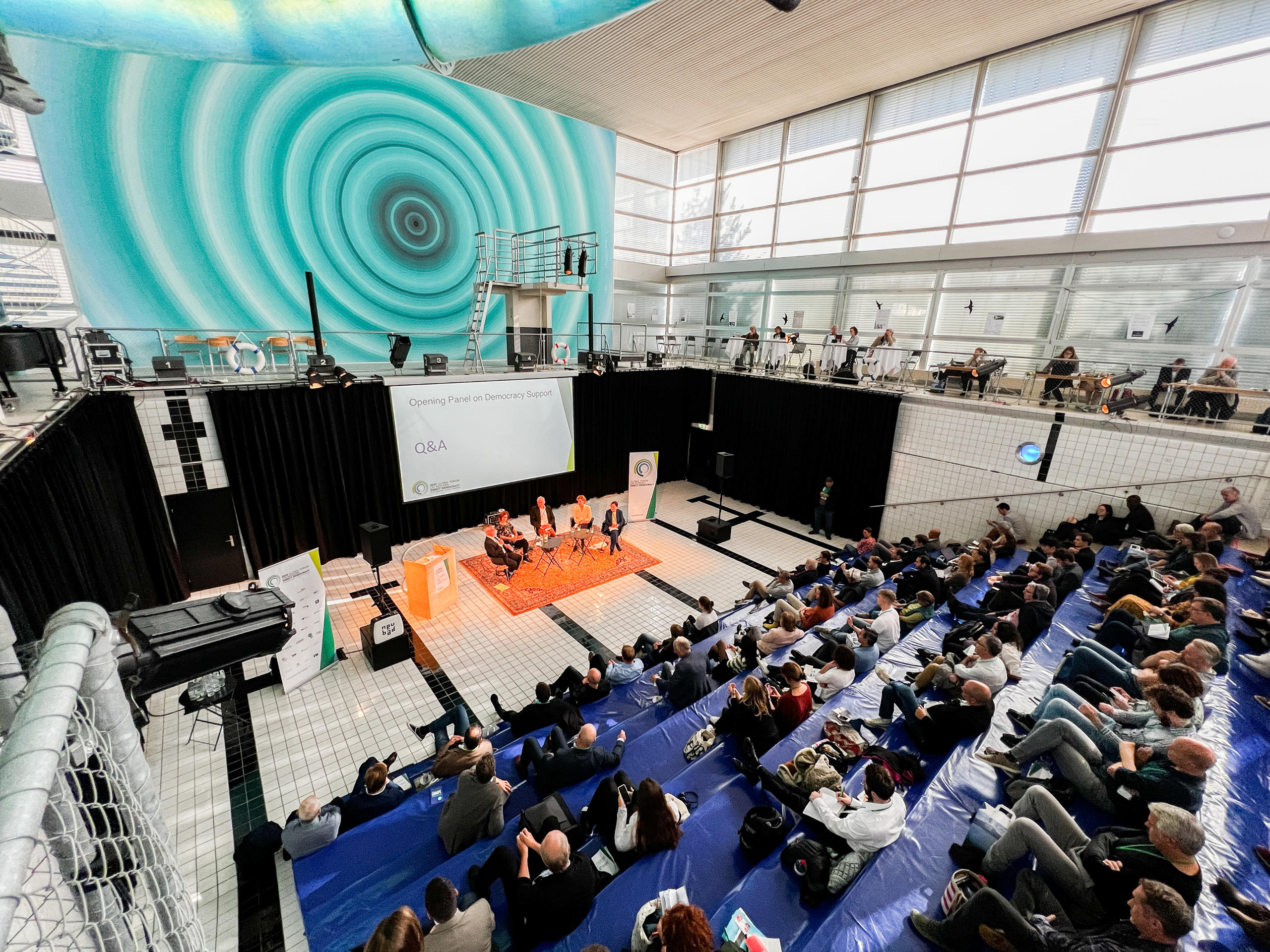Global democracy: more than a utopian dream?

A global democracy that transcends national borders may sound utopic, but it is an idea around which more and more people are gathering. In Switzerland, there is even talk of a people’s initiative to make it a reality.
Of all the discussions at this year’s Global Forum on Modern Direct Democracy in Lucerne, one event stood out for its message of hope.
“My idea is not provocative – it is self-evident: every person in this country [and] in this world, should be able to vote on global issues,” organiser Lucy Koechlin, an expert on corruption, told the 30 people in attendance at an underground clubroom. Koechlin represents the association GloCo, short for Global Community. The association has members in Switzerland and the United States. Daniel Jositsch, a Social Democratic Party Senator from Zurich, is its most prominent member.

Koechlin instructed participants to move their chairs to form a circle. Then they had to select from red or green stickers. Some people stuck both on their chest. One person dared to choose just the red sticker. The overwhelming majority chose the green one, which stood for hope. It read: “Global democracy will solve global problems.”
Everyone had a chance to speak. First, each person was to ask themselves what it would take for them to feel like a citizen of the world. Koechlin urged people to “think with their hearts”.
A solution to global problems?
For many, global democracy may sound like nothing more than a utopic idea. The prospect of losing state sovereignty can be frightening. Yet national democracy is hardly the norm: according to The Economist‘s Democracy Index, only 45.7% of the world’s population lived in a democracy in 2021. This proportion is falling: in 2020 it was 49.4%. Most advocates of world democracy are aware of this.
But their focus is different. The current situation does not necessarily reflect what the majority of the world’s population wants. Some studies support the view of world democrats. A surveyExternal link commissioned by the BBC in 2016 showed a high level of support for the concept of a “global citizen”: 51% of respondents in 18 countries stated that they predominantly perceived themselves as such. Scores were particularly high in Nigeria (73%), China (71%), Peru (70%) and India (67%).
World democrats also cite the 2017 survey by Global Challenges Foundation, a Swedish NGO. According to this survey conducted in eight countries – including the US, China and India – three-quarters of people see themselves as global citizens. In all, 59% were in favour of their country giving up part of its sovereignty in favour of global structures that can better address global problems.
In Lucerne, the Global Forum gave attendees a chance to learn what the role of states in a global democracy could be.
“States will continue to have democratic importance, just as municipalities do in today’s democracy,” Stefan Kalberer of Democracy Without Borders said during a panel discussion. Elections are won in countries: this is the reason why global democracy is not discussed more frequently, according to Kalberer.
“No politician is interested in promoting such ideas,” he said. “The system is not built for that.”
The European Citizens’ Initiative
The ideas of what world democracy should look like are broad: they range from a United Nations with real power to internationally recognised citizens’ panels or a virtual democracy.

More
Can citizens’ assemblies strengthen Swiss democracy?
Back in the underground clubroom, Daniela Vancic of Democracy International outlined how the European Citizens’ Initiative could be taken to a global level. The initiative is the world’s first transnational democratic instrument: a million European Union citizens from at least seven countries must sign a petition within one year. If these signatures are collected, the EU Commission has to address the issue. The “UN citizens’ initiative”, as Vancic calls the proposed international variant, would have the additional problem that the UN’s power is limited.
Next, Alexandra Gavilano, an environmental scientist and climate activist, called for citizen panels on climate issues to be recognised nationally and globally and to gain as much power as possible to implement policies. Jon Stever, another activist, presented the Global Assembly project: in 2021, some 100 people from all over the world – chosen by lot – gathered to discuss climate protection measures.
On the Global Assembly website, UN Secretary-General António Guterres praises the project as a “practical approach” to accelerating action through “solidarity and people power”. Despite this institutional support, Stever’s assessment of how projects like the Global Assembly, citizen panels and the internet can work together sounded optimistic.
“We have created a global legislature,” he said. “Now we need a global constitution.”

The optimism and the many green stickers were somewhat surreal. But participants also asked critical questions, such as whether the dominance of tech companies stands in the way of world democracy. Questions about which political level advocates of world democracy should get involved in sparked a lively discussion.
A Swiss people’s initiative
Daniel Graf, a political campaigner, said that drawing up petitions and running political campaigns was a pragmatic profession. But sometimes he spends time daydreaming.
“In times of crisis, daydreaming is important,” he said. Graf drew a 19th-century comparison. Back then, the advocates of Esperanto, which was planned as an “international language”, dreamed of tearing down language barriers. “Today, every smartphone does live translations,” he said. Technically, a worldwide democracy is now possible.
Graf is pursuing the idea of a virtual democracy. If enough people voted, the decision would carry weight, independent of state structures. If every person can access a website in a secure and clearly identifiable way, everyone could vote on the same issue in a global ballot. As a political campaigner in Switzerland, the first step towards world democracy for him is a Swiss people’s initiative. He is now thinking about one.
“I am confident that an initiative for a global democracy would be able to win a majority,” Graf told SWI swissinfo.ch, referring to Switzerland’s long tradition as a host country for international organisations. “Switzerland would be the first country in the world to write the vision for a global democracy into its constitution.” Graf imagines that Switzerland would then promote pilot projects for global democracy as a first step.
“One example would be World Citizenship,” he said. “Switzerland could help to ensure that every person in the world receives a globally valid e-ID.” This would be a prerequisite “to have a voice and to have a say in global issues in the future.”
Whatever one may think of the idea, Swiss voters are not known for their sympathy for global structures and international organisations. How citizens of autocratic states could use an e-ID without putting themselves at the mercy of their government is another question altogether.
Adapted from German by Catherine Hickley/gw

More
Global Forum for Democracy 2022 – voices for freedom in Lucerne

In compliance with the JTI standards
More: SWI swissinfo.ch certified by the Journalism Trust Initiative














You can find an overview of ongoing debates with our journalists here . Please join us!
If you want to start a conversation about a topic raised in this article or want to report factual errors, email us at english@swissinfo.ch.